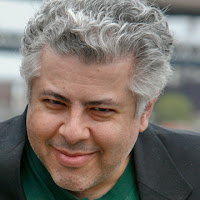Over the years we have learned a great deal about writing and what it takes to survive in this business. Today we would like to share those ABC's with you.
Affirmation¾As writers we get a lot of
rejection. It helps if we have some
affirmation. So, the next time you get a
good comment from a critique partner, an editor, or even your child who says
“You’re a good writer, Mommy,” tuck it away in a special file. Then when you feel like chucking the computer
out the window and giving up on writing, pull out those affirmations and tell
yourself, “ I can do this. I am
a Writer!”
Brainstorming¾Brainstorm without putting
checks on your imagination. Don’t be
afraid to think of the most outrageous ideas when you’re brainstorming. “What if” may be the best tool a writer has
to stimulate his imagination.
Creativity¾Never let anyone say you don’t
have creativity. The very fact that you
want to write shows you have creativity.
Just keep thinking about your story, asking “What if”, and letting all
your skills and thoughts take you into the world where your characters live. Eventually, you’ll find, or create, what you
need.
Discipline¾Every writer needs it; most of
us do not have it. The discipline to sit
down in front of the computer every day, even when you don’t feel like it, will
get you through the rough parts of your stories.
Edit¾ISSAC B. SINGER said, “The wastepaper basket
is the writer’s best friend.”
Think
of yourself as a writer first and an editor second. Write, rewrite and rewrite some more. Never, ever, send that first draft to an
editor.
Fodder¾Everything you see and hear and
everyone you meet is fodder for a writer.
Writers have great excuses for eavesdropping on the world. Ideas, character sketches, names, plot twists¾you name it and you can find
inspiration for it among your family, friends and the guy sitting next to you
in McDonalds. Don’t let them know what you’re up to, however. If they recognize themselves in your next
story they may never speak again when you’re around.
Grammar¾Webster defines grammar as “a
study of what is to be preferred and what is to be avoided in inflection and in
syntax.” When you present your
manuscript make sure the grammar is correct.
Don’t depend solely on your computer grammar check; its suggestions are
not always right. Instead, invest in a
good English or grammar handbook and use it.
The Associated Press Stylebook and Libel Manual has a nice section on
grammar and punctuation that I use all the time. If you have trouble with grammar find a
friend or an adult enrichment class that can help you brush up on your grammar. You don’t have to be able to diagram a
sentence, but you do have to be able to put it together correctly. That goes for punctuation too.
Hope¾Hope should spring eternal in
the hearts of writers. As long as you
have something circulating among editors you should always have hope. Never
give up, not even when you have enough rejection letters to wallpaper your
office.
Ideas¾There are no bad ideas. Even the worst idea can provide a springboard
for something better. Keep all your
ideas in a file so you can pull them out whenever you have a dry spell. You’ll be surprised what new, and better,
ideas might spring from an idea you considered trashing.
Journaling¾Journaling is a great way to
keep your writing flowing, especially on those days when you can’t, or don’t,
get to the computer. Write at night, in
the morning, in the bathroom, or any place where you and your journal can
go. Put down your emotions, your
thoughts, impressions, snatches of conversations, or visual images. All these things can be story sparkers or
sensory descriptions you might be able to use in some other writing.
Know How¾Like every profession, writing
is a job that takes skill. You can’t be
an electrician or a plumber without learning the ropes¾the skills and the tricks of
the trade. That’s true in writing
too. To become a success as a writer you
have to study your craft, learn the best way to write an article, a scene, a
chapter, a book. You have to know how to
structure your plots and characters, and you have to become knowledgeable about
the business. Learn all you can about
writing and the writing business so you can succeed.
Laughter¾Keep a sense of humor about
yourself and your writing. There will be
plenty of times that you will get your feelings hurt as a writer¾someone won’t like your baby, a
critique will rub you the wrong way, an editor might ask for umpteen
revisions. If you can face life, and
writing, with humor you’ll be able to get through most anything¾and even have some good story
material in the process.
Marketing¾If you want to sell, then know
your market. Don’t waste your time, and
an editor’s time, by sending manuscripts that aren’t suitable for the
publication.
Networking¾Do it! Network with anyone in the writing business
that you can. Editors are besieged with
unsolicited manuscripts. Any time they
can connect a face, organization, or conference to you, you are one step ahead
of the game. Take every opportunity to
meet, talk with and mingle with editors.
Don’t forget networking with other writers too. You can’t know all there is to know about the
publishing world and what is going on.
Take advantage of any information other writers have to offer. Getting published is not always about
talent. Sometimes it’s also about being
in the right place, or submitting to the right place at the right time.
Organization¾If you can’t find the computer,
your copious notes, or the paper and pencil under the clutter in your office,
then you can’t write. The more organized you are the less time you’ll spend
hunting and the more time you’ll have for writing.
Perspiration¾Don’t wait for the Muse. Writing is one-percent inspiration and
99-percent perspiration. If you wait for
inspiration, you might as well be taking a nap while you’re sitting in front of
you computer.
Query
Letter¾Queries
can be more intimidating and frustrating than writing the whole darn book. I know plenty of writers who dread the “Query
Letter.” The query is an editor’s first
glimpse of you and your story. Consider
it an important, but necessary, evil of your craft, and learn to conquer
it. The Writer’s Market has great
examples of how to write a good query.
Reading¾“A room without books is like a
body without a soul.” Cicero
A
writer who doesn’t read will soon find himself out of touch with the very world
for which he is writing. Read, read, and
read everything that you can. Fiction,
non-fiction, newspapers, magazines, cookbooks, cereal boxes, dictionaries,
children’s literature, and certainly read in whatever genre in which you want
to write.
Solitude¾The life of a writer is a
solitary one. “Family, friends, and society are the natural enemies of a
writer. He must be alone, uninterrupted
and slightly savage if he is to sustain and complete an undertaking.” LAWRENCE CLARK POWELL Learn when, and how, to shut
the door and lock out the world. Find
the time and the place that works best for you.
Tenacity¾“A professional writer is an
amateur who didn’t quit.”
RICHARD BACH
Dr. Seuss had his first book rejected
64 times and was ready to toss it in the trash.
A friend convinced him to try just one more publisher¾the rest is history. Seuss could have remained an amateur if he
had given up. Don’t give up. You might miss your chance at a bestseller.
Universality¾Want to sell? Then make sure your stories and articles have
a universal appeal. There is nothing new under the sun, just a different way to
tell it. Stories with universal appeal
never go out of style.
Virgin
Reader¾Every
writer needs one of these. We get so
close to our “babies” that we can’t see their flaws. But, believe me, an editor will. So, find someone you trust to give you fair,
constructive criticism¾someone
with a fresh set of eyes to look at your writing¾and let them be a Virgin.
Write¾“Planning to write is not
writing. Outlining a book is not
writing. Researching is not
writing. Talking to people about what
you’re doing, none of that is writing.
Writing is writing.” E.
L. DOCTROW
‘Nuff
said.
Xercise¾(Yes, I know it’s not spelled
that way) Writing takes a lot of mental power but doesn’t exercise the other
body muscle groups (except the fingers).
So, to keep yourself healthy¾and maybe even sneak in some
writer avoidance time¾take
time to exercise. You’ll come back to
the keyboard refreshed and awake. A bonus¾getting the endorphins revved
can even kick your brain into gear and help you solve whatever writing problem
you’ve been facing.
Ying
and Yang—A writer needs balance, in his life and on the page. Too much time
alone with the book isn’t a good thing. Neither are pages of narrative or back
story with no dialogue or action. Find that happy medium in your life and your literary pursuits.
Zeal¾“Writing is a dog’s life, but
the only life worth living.” GUSTAVE
FLAUBERT
If
a writer’s “dog’s life” isn’t what you want, then you had just as well close
your notebook, break your pencil in half, and find something else to do with
your life. Zeal, passion and a love of
your work will keep your writing fresh and alive. If you don’t like what you are doing you
probably will not succeed at it.
 The Promised One
The Promised One (The Turning Stone Chronicles Book 1)
 Blood Brothers
Blood Brothers (The Turning Stone Chronicles Book 2)
Son of the Moonless Night (The Turning Stone Chronicles Book 3)
 The Mercenary and the Shifters
The Mercenary and the Shifters (The Turning Stone Chronicles Book 4)
 C.D. Hersh–Two hearts creating everlasting love stories.
C.D. Hersh–Two hearts creating everlasting love stories.
Putting words and stories on paper is second nature to co-authors C.D. Hersh. They’ve written separately since they were teenagers and discovered their unique, collaborative abilities in the mid-90s. As high school sweethearts and husband and wife, Catherine and Donald believe in true love and happily ever after.
They have a short Christmas story,
Kissing Santa, in a Christmas anthology titled
Sizzle in the Snow: Soul Mate Christmas Collection, with seven other authors.
They are looking forward to many years of co-authoring and book sales, and a lifetime of happily-ever-after endings on the page and in real life.
Social Media Info:






















